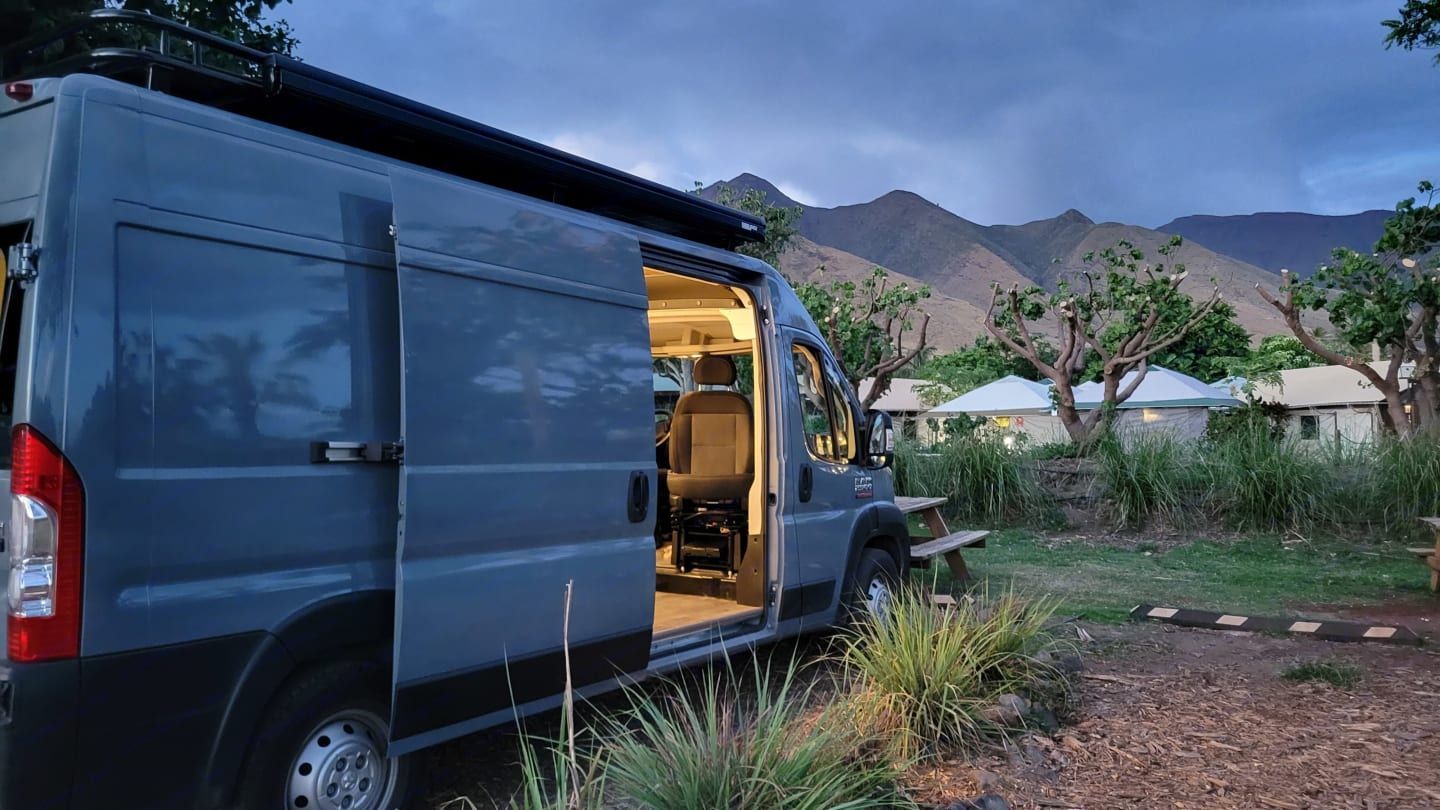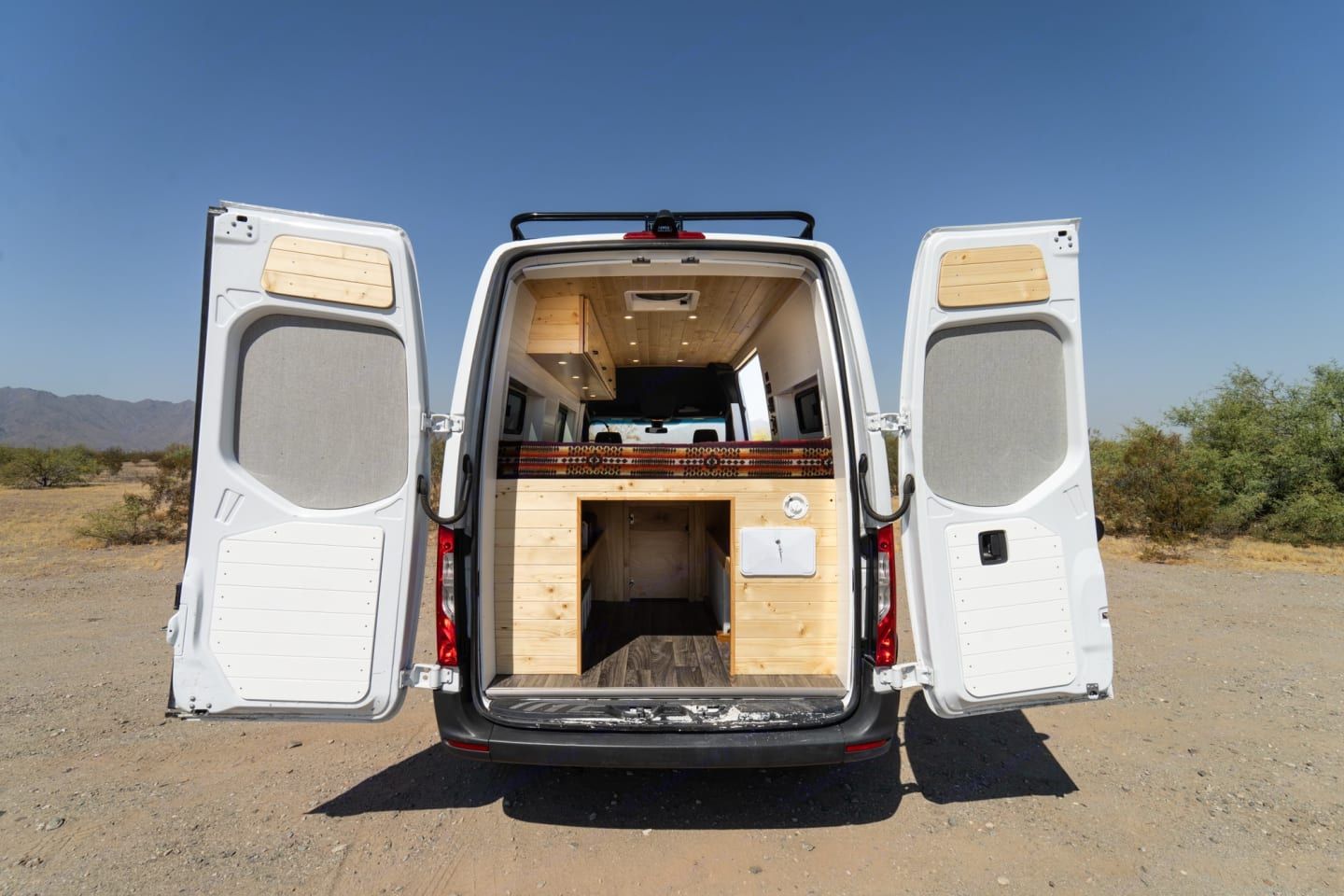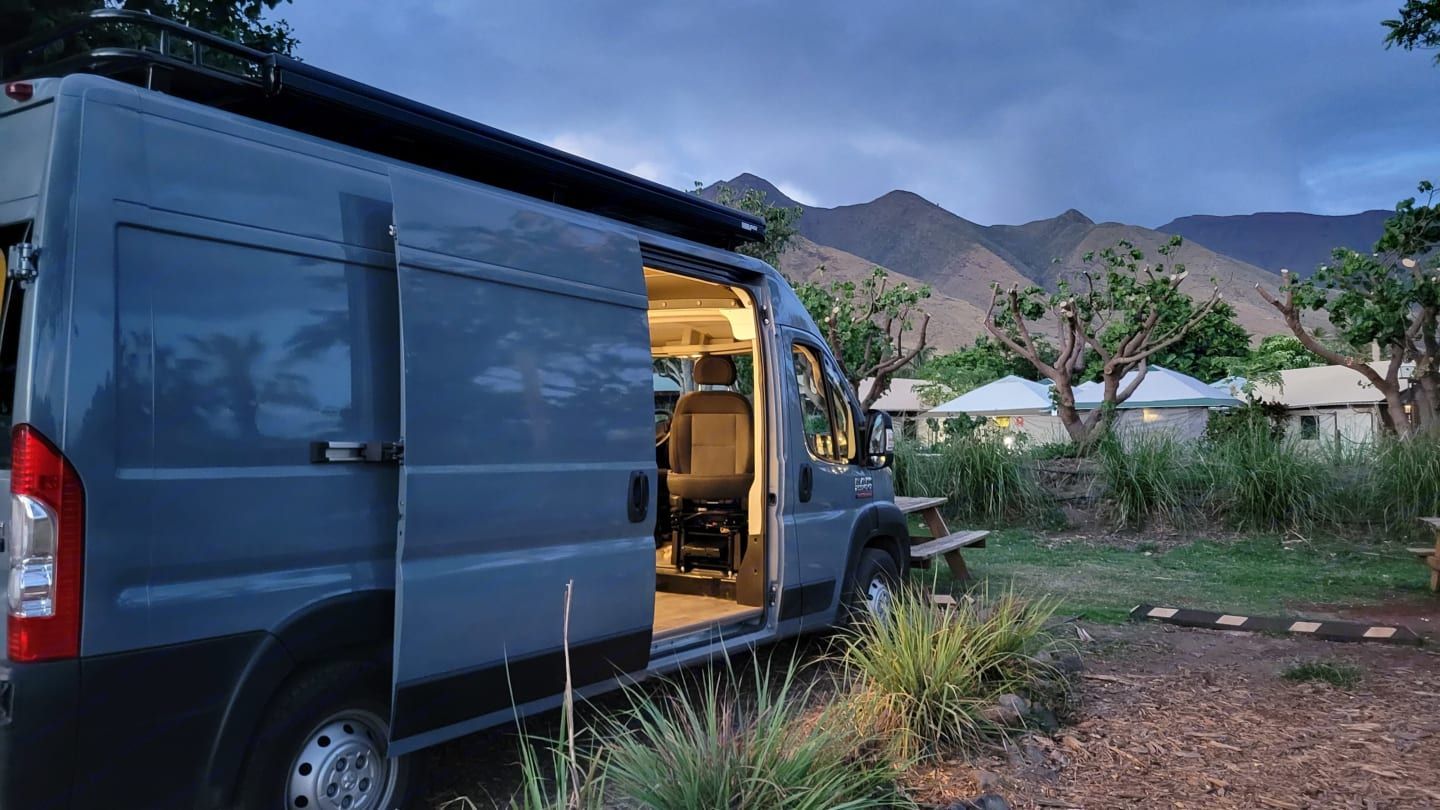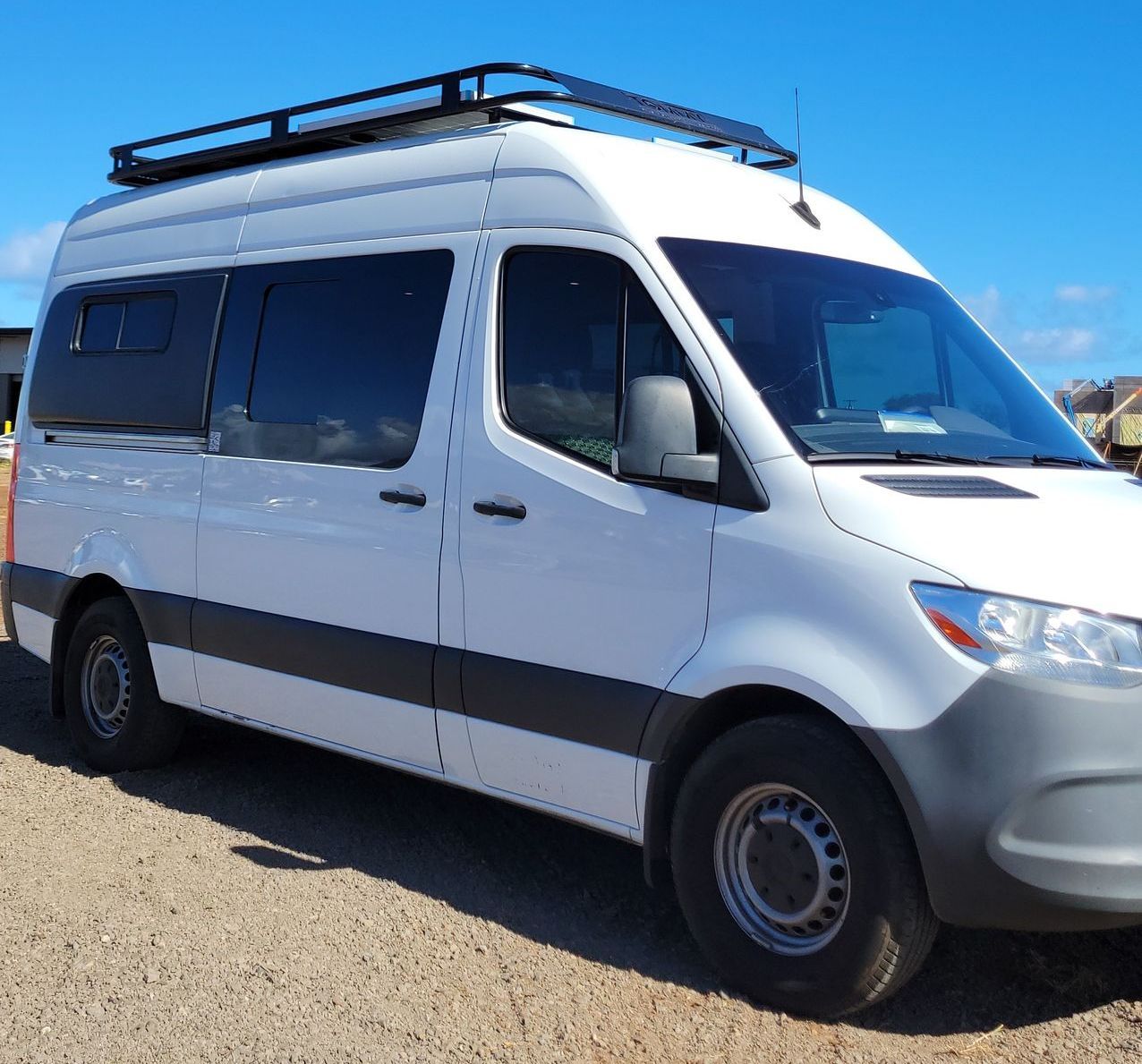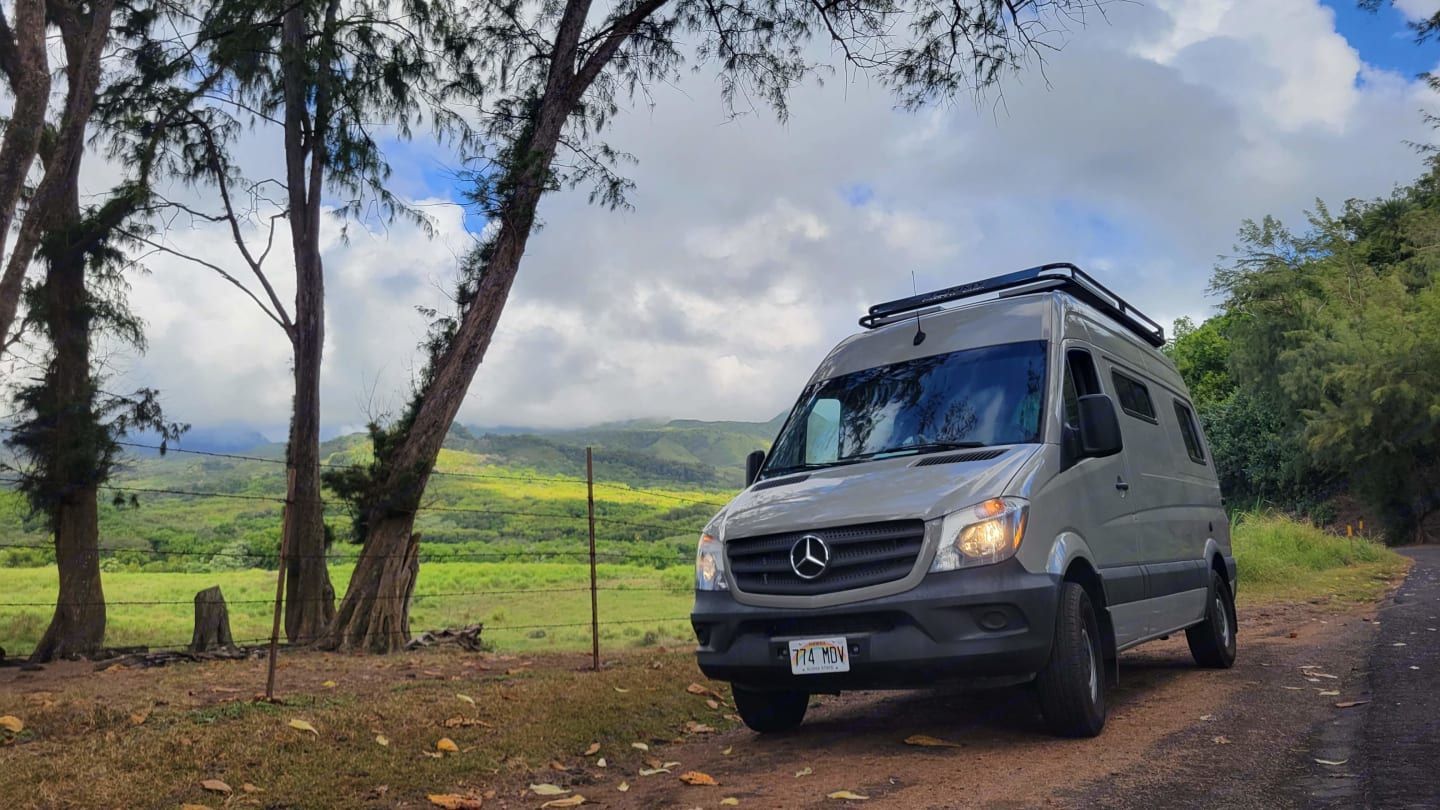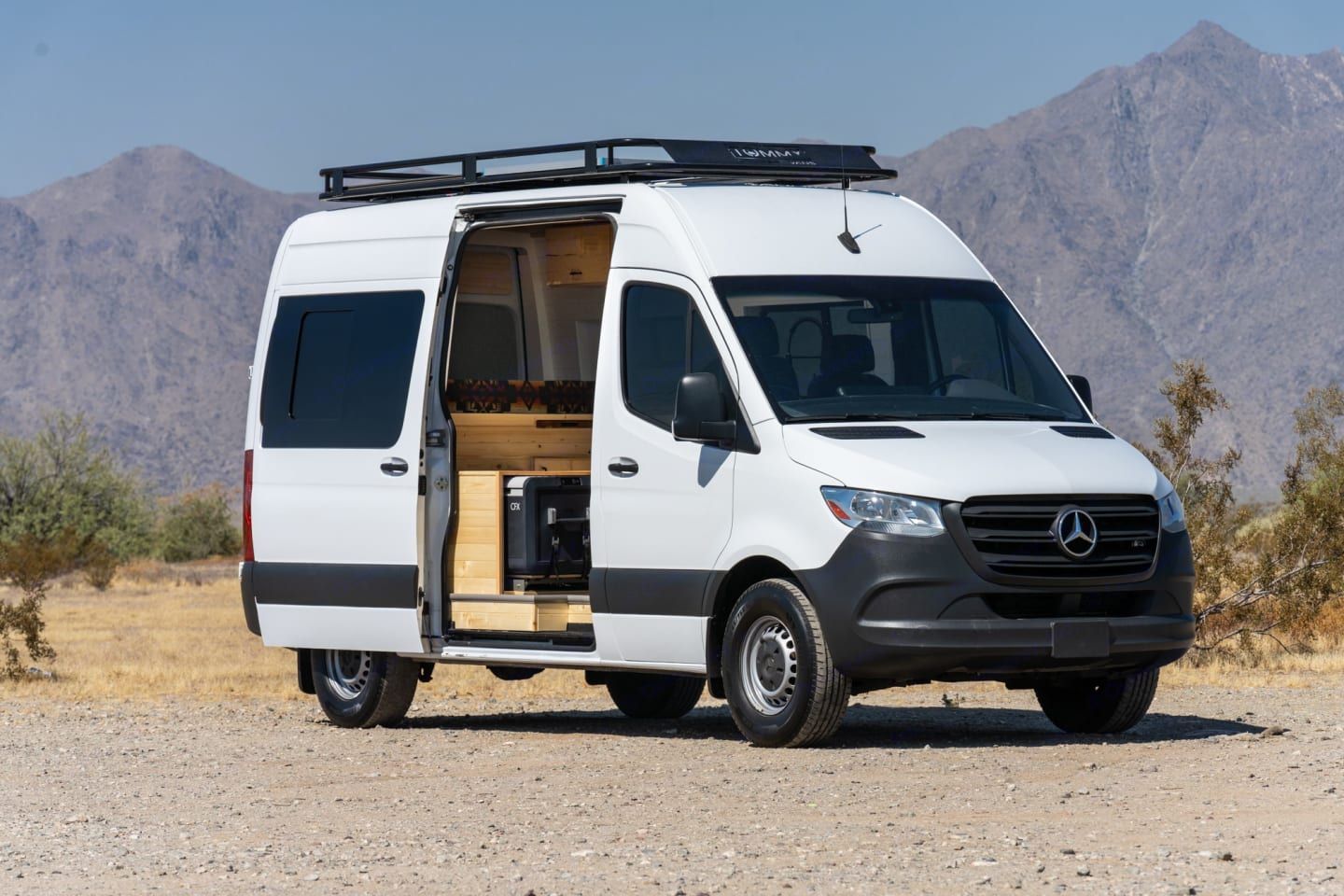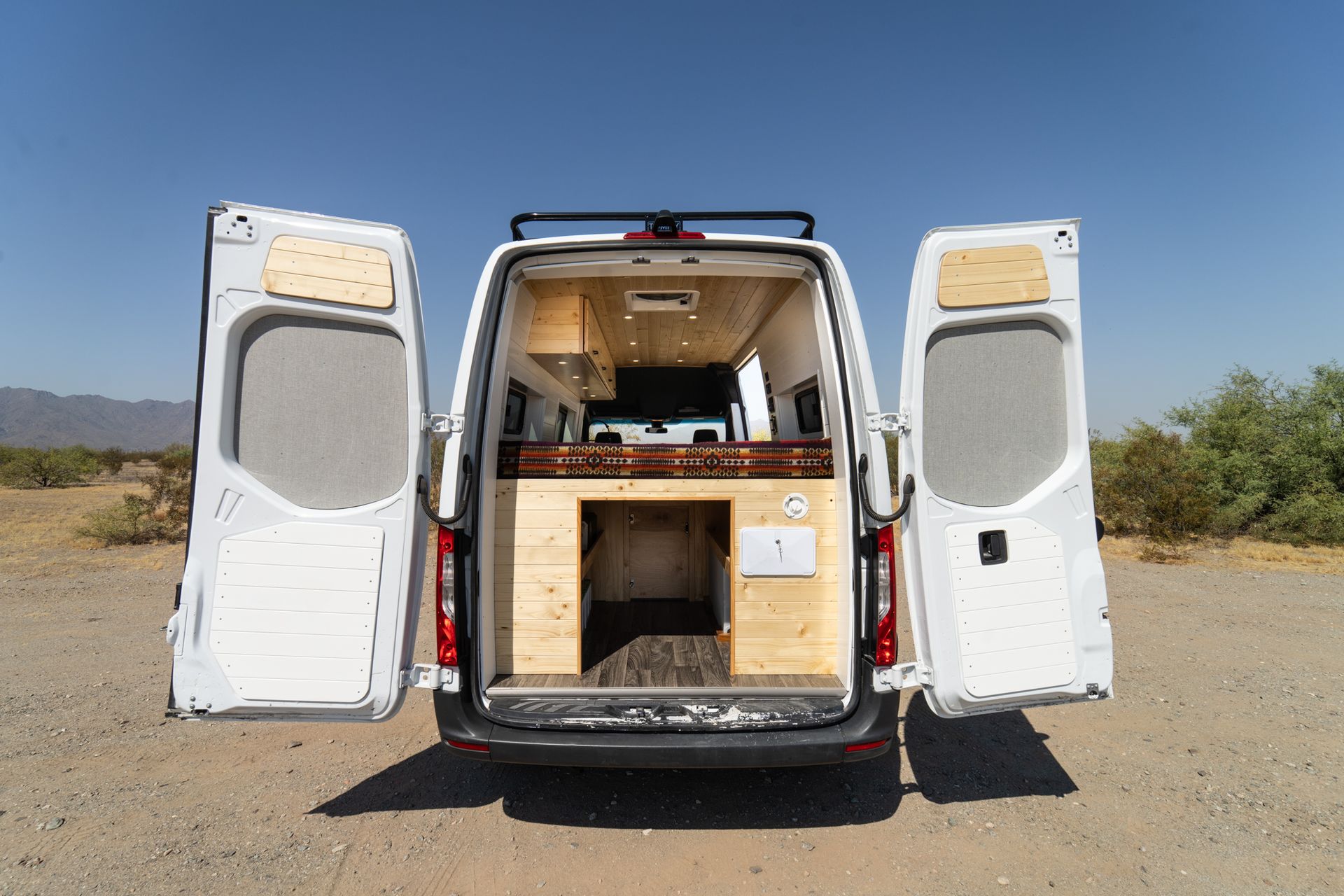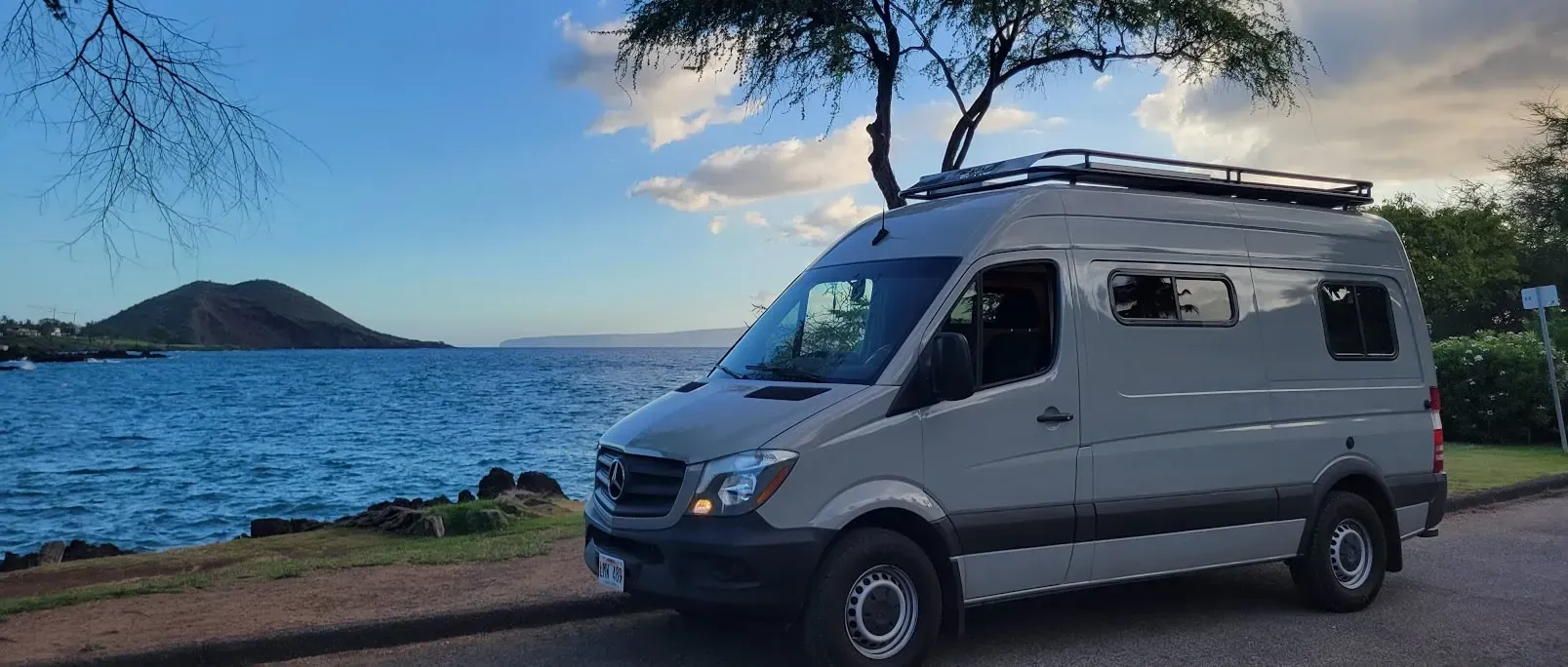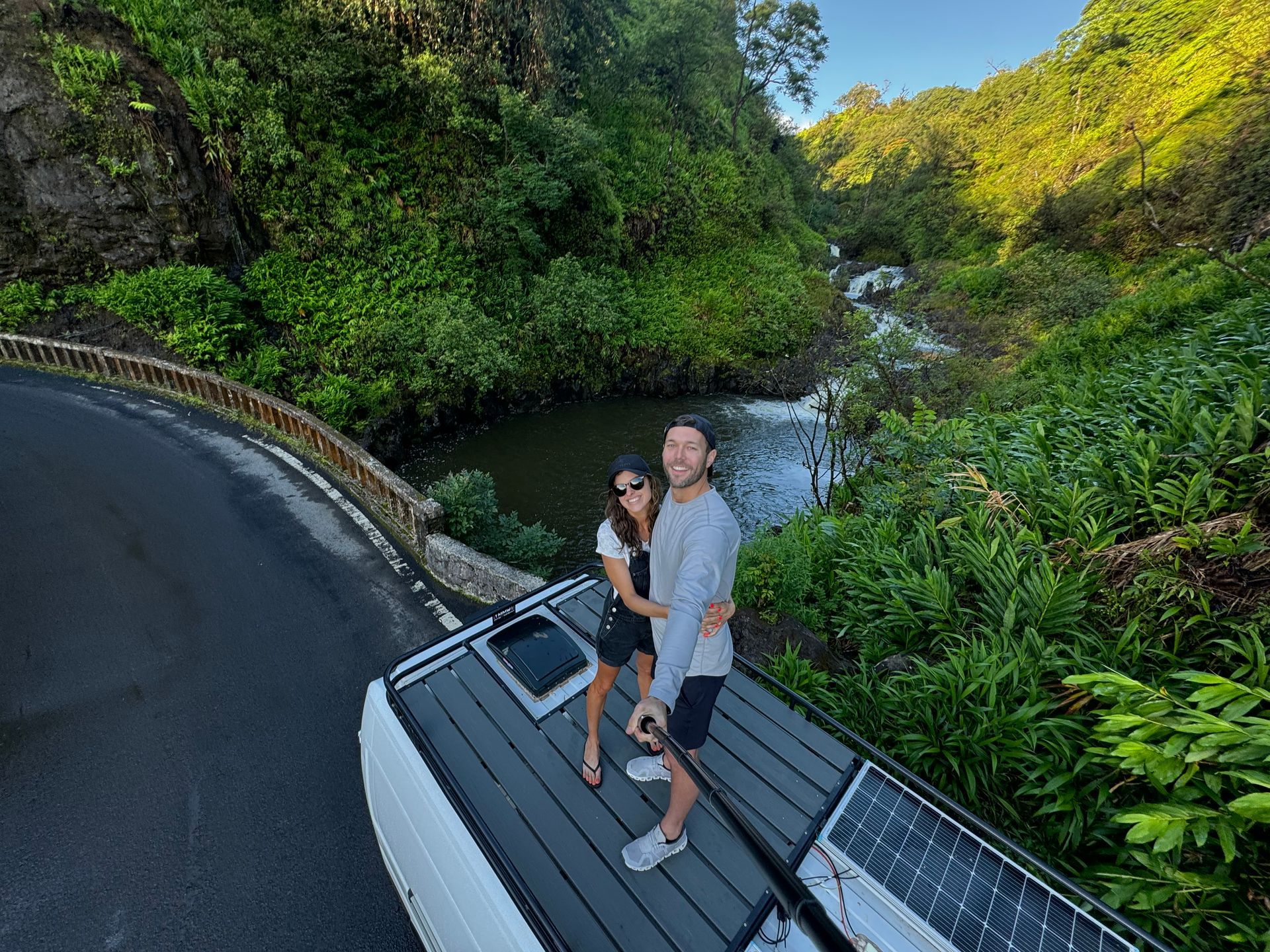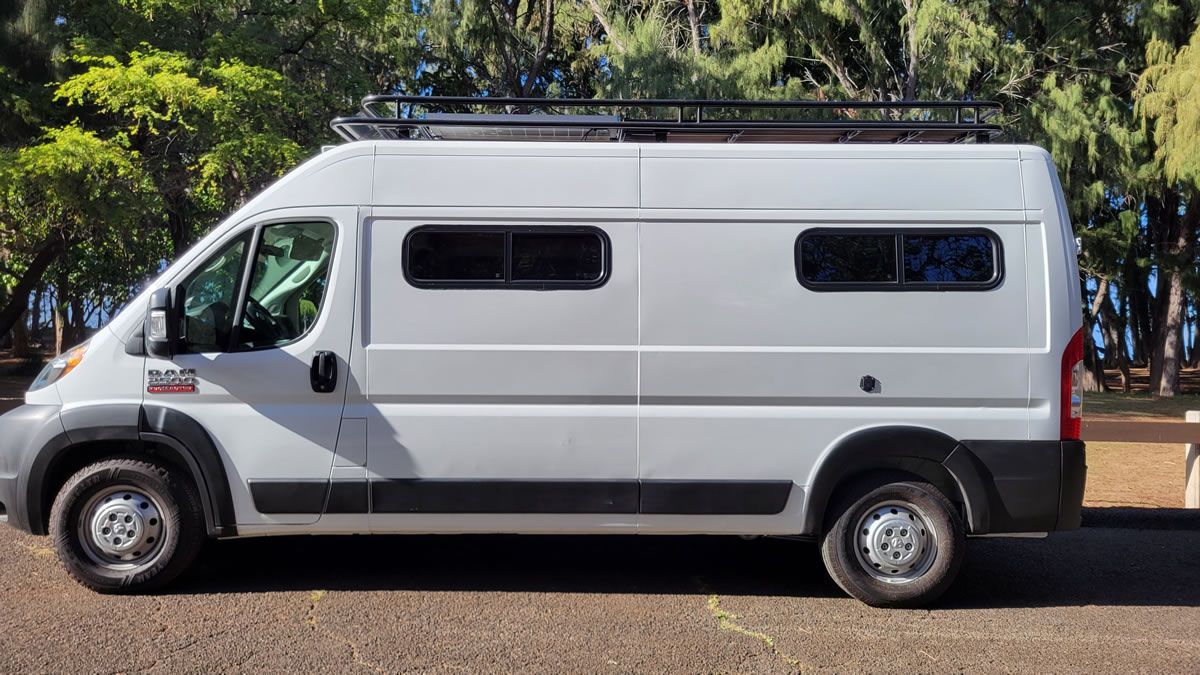Camper Vans vs. Beachfront Resorts: The Truth About Costs
Planning a vacation sounds fun. Until you try to figure out what it’s actually going to cost. Camper vans and beachfront resorts both sound great, but they’re two very different types of trips. One gives you the freedom to go where you want. The other gives you comfort and everything done for you.
In this post, we’ll break down the real costs of both so you know exactly what you’re paying for and what kind of trip makes more sense for you.
What You Pay Upfront
Before you’re sipping coffee by the ocean or making pancakes in a camper van, you’ve got to open your wallet.
Here’s what you’re really paying for upfront.
Camper Vans
- Renting a Van for the Week:
You’ll usually spend $75 to $200 a night, depending on how fancy or basic the van is. A newer Class B van can run over $200 per night. Older or more stripped-down ones, like those from Travelers Autobarn, can go for as low as $70 per day with unlimited miles.
👉 Consider seasonality too. Peak travel times in Hawaii can push rental prices higher.
- Buying a Van for the Long Haul:
Buying a camper van means spending $10,000 to well over $100,000 upfront. It’s a chunk of change, but it could save you money over the years if van life becomes your thing.
👉 Used vans often cost less but may need upgrades or repairs.
- The Not-So-Optional “Extras”:
That rental may look ready to go, but often, you’ll need to bring or rent things like pots, pillows, bedding, a cooler, and camp chairs. Some rentals toss these in. Others don’t.
👉 Check the gear list before booking. These items can cost $100 to $300 to rent or buy.
- Insurance (Because, Yep, You’ll Need It):
Most rentals include basic insurance. Still, it’s smart to ask what’s covered. Some will pay extra just to play it safe and avoid surprise bills.
👉
Also consider adding roadside assistance in case of breakdowns.
Beachfront Resorts
- Rooms With a View (and a Price):
Staying by the beach? Expect to pay around $150 to $800 per night. Prices vary depending on how close the waves are to your room and how much marble is in the bathroom.
👉 Luxury resorts in Hawaii can easily top $1,000 a night.
- Getting There Isn’t Free:
Unless you live nearby, you’ll need to book flights and figure out how to get from the airport to your resort. That usually means rideshare apps, taxis, or shuttle fees.
👉 Airport transfers can run $20 to $150 depending on the location.
- The Sneaky Fees Nobody Talks About:
Some resorts tack on extra charges like resort fees. That can be another $25 to $60 a night just for using the pool or Wi-Fi. These don’t always show up in the booking price.
👉
Always check the fine print or call ahead for a full breakdown.
What You Pay Each Day
Camper Vans
- Campsites range from free (boondocking) to around $50 a night with full hookups.
- Gas adds up fast if you're covering lots of miles—plan for $15–$40 daily.
- You’ll likely cook your own meals, which keeps food costs low—around $10–$30 a day.
- Dump stations, Wi-Fi, or showers might cost $5–$20, depending on where you stay.
(Parking near cities or beaches may require paid permits.)
Beachfront Resorts:
- Expect to eat out or order in, with meals costing $50–$150 a day.
- Drinks, snacks, and tours add up quickly, especially near busy beaches.
- All-inclusive deals can make things simple but usually cost more upfront.
- You might also pay extra for tips, activities, or anything outside the resort.
(Expect additional charges for things like yoga classes, beach rentals, or kids’ clubs.)
Easy Comparison:
| Expense | Camper Van | Resort |
|---|---|---|
| Lodging | $0–$50 | $150–$800 |
| Food | $10–$30 | $50–$150 |
| Travel (gas/flights | $15–$40 | Varies |
| Extras | $0–$20 | 20–$100 |
Hidden Costs That Surprise People
Camper Vans:
- If your van breaks down, it can cost a lot and ruin your whole trip.
- Some campgrounds charge extra for things like electric hookups or dumping waste.
- Not every place has a bathroom. And if they do, it might not be clean.
- In cities, you might have to pay to park your van overnight.
👉
Also expect to spend time planning routes, booking campsites, and checking local laws.
Beachfront Resorts:
- Some resorts charge for things like beach chairs, towels, or water bottles—even if you're already staying there.
- Tipping is expected for workers like cleaners, drivers, and restaurant staff.
- Small things like bug spray, sunscreen, or snacks cost way more at the resort store.
- Want to check in early or stay late? That could cost extra, too.
👉
Some resorts also charge for parking, even if you’re a guest.
What You Get for the Price
Camper Vans:
- You can drive and stay wherever you want.
- It’s usually quiet, with fewer people around.
- You decide when to eat, sleep, and move.
- Most vans come with a bed, a small kitchen, and storage.
- You do your own cooking and cleaning.
Beachfront Resorts:
- You get a clean room with a bed, bathroom, and air conditioning.
- The staff handles cleaning, food, and laundry.
- Pools, gyms, and the beach are on-site.
- Food and drinks are available without leaving.
- Activities and tours are often offered by the hotel.
Real Cost Example (Estimate)
Here’s what a one-week trip for two people might actually cost. This isn’t guessing. It’s a realistic look at common prices you’ll likely pay for each kind of vacation.
Camper Van Trip for 7 Days
- Van Rental – $1,000
Most rental vans cost between $140 and $200 a day. This estimate includes insurance and basic equipment like a bed and kitchen setup. - Gas – $200
Driving a camper van burns more fuel than a regular car. If you travel a few hundred miles during the week, expect to spend around $200 on gas. - Food – $200
You’ll probably buy groceries and cook in the van or at campsites. You might eat out once or twice, but most meals are DIY. - Campsites – $150
Some campsites are free, but most with hookups or bathrooms cost $20–$50 per night. This estimate covers a mix of both.
Total Estimated Cost: $1,550
This setup gives you more flexibility, but you’re doing the driving, planning, and cooking. It’s a better fit for people who like to stay active and don’t mind handling things on their own.
Beachfront Resort Trip for 7 Days
- Hotel – $2,800
Beach resorts usually charge between $350–$450 per night for two people. This cost includes a standard room with access to pools, the beach, and basic amenities. - Flights – $800
For two round-trip tickets to a beach destination, $800 is a common price. It may be less if you book early or use points, but this is a safe estimate. - Food & Extras – $500
Meals, drinks, snacks, and small purchases (like sunscreen or souvenirs) can add up quickly. Some resorts include breakfast or offer meal plans, but many don’t.
Total Estimated Cost: $4,100
This option is great if you want everything ready when you arrive. No driving, no cooking, no setup. You just relax while the staff takes care of the details.
Frequently Asked Questions
Do Camper Vans Keep Their Value?
Yes, many camper vans keep their value well over time. Like any new vehicle, they lose value in the first year, but after that, the drop is slower—especially if the van is well-maintained and not driven into the ground.
Are Camper Vans a Budget-Friendly Choice?
In most cases, yes. Camper vans are smaller, use less fuel, and cost less to buy than full-size RVs. If you’re careful with your travel habits, they can be a more affordable way to see new places.
How Long Will a Camper Van Last?
A well-cared-for camper van can last around 20 years or up to 200,000 miles. If you're buying used model, it's smart to check how close it is to that range and how it’s been maintained.
Is a Toilet Really Necessary in a Camper Van?
If you're just camping on weekends or staying at campgrounds, you can probably do without one. But if you're planning to travel full-time or stay off-grid, having your own bathroom setup can make life a lot easier.
What’s Considered High Mileage for a Camper Van?
Over 100,000 miles is generally seen as high mileage. That doesn’t mean it’s not worth buying it just means you’ll want to check things like service records, engine condition, and any past repairs.
Can Camper Vans Get Hot Inside?
Yes, they can. On hot summer days, the inside of a camper van can heat up fast. Good insulation, window covers, fans, or a small AC unit can help keep things cooler.
Which One Should You Choose?
Choosing between a camper van and a beachfront resort depends on the kind of trip you want.
If you’re after freedom, open roads, and saving money, a camper van gives you that—plus more time outdoors. Prefer comfort, easy meals, and no driving? A resort might be more your speed, but it’ll cost more.
Planning a Maui adventure? A camper van lets you explore the island on your schedule, with no crowded lobbies or fixed check-in times.
If that sounds like your kind of trip, we’d love to help. Mana Vans Hawaii makes it easy to hit the road with everything you need in one van. Ready to book? Contact us today.
